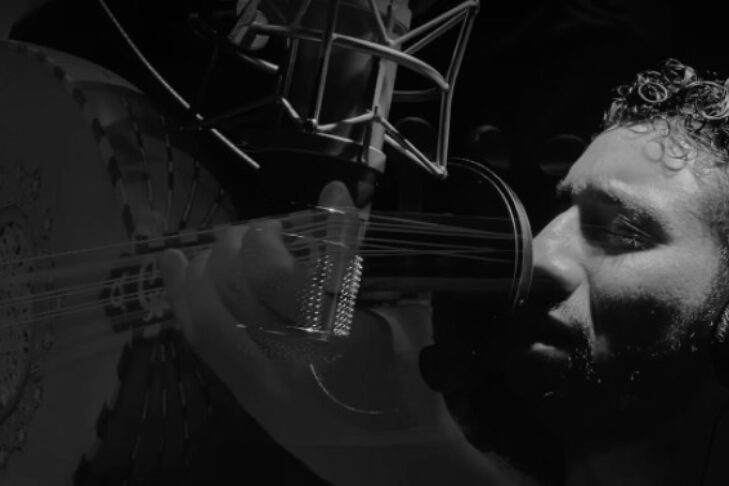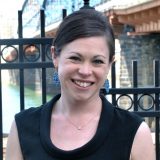Art d’var: Commentary on Torah through a related work of art. Just as Torah is a framework for Jewish life that must be unpacked and investigated from many angles to understand the depth of its content and applicability to our own lives, so is great art. This series illuminates works of art that help contemporize the ancient text of the Torah.
Chayei Sarah
Fifth Torah portion in the Book of Genesis
5,314 Hebrew letters
1,402 Hebrew words
105 verses
Chayei Sarah, meaning “Sarah lived” in Hebrew, ironically starts with the story of Sarah’s beloved husband and the Jewish patriarch, Abraham, looking to buy her a burial plot (this is where we learn about the infamous Cave of Machpelah, the first part of the Holy Land to be owned by the Jewish people). The portion goes on to talk about the search for a wife for Isaac, the first Jewish child, and ends with Abraham’s death.
This is a pretty significant portion as it describes the lifecycle of the Jewish matriarch and patriarch. So in thinking about new perspectives on this most foundational of biblical stories, I was surprised and compelled by a beautiful theory from the late Lord Rabbi Jonathan Sacks.
In his 2018 blog, Sacks focuses on section 25, line 9, of Genesis, which says, “His sons Isaac and Ishmael buried him in the cave of Machpelah, in the field of Ephron son of Zohar the Hittite, facing Mamre.”
Sacks goes on to say, “The hidden story of Chayei Sarah has immense consequence for our time. Jews and Muslims both trace their descent from Abraham—Jews through Isaac, Muslims through Ishmael. The fact that both sons stood together at their father’s funeral tells us that they too were reunited.”
You might be familiar with the idea that Judaism came through Isaac’s line and that Islam came through Ishmael’s line. But what Sacks points out in this portion that’s unique is really about the strength of family—and how even in challenging relationships, we all can and should find the strength to come together when it really matters.
Just as Abraham’s funeral made a space for Isaac and Ishmael to come together, Yoni Battat sought to make space for Arab and Jewish brothers and sisters to come together across tension, during his 2020 Community Creative Fellowship, powered by JArts and CJP.
As a young musician, most of Yoni’s formal schooling was connected to his mother’s roots, the more common Ashkenazi American Jewish story. But as an emergent artist, Yoni made the decision to lean into his father’s Iraqi Jewish roots, exploring this part of his identity that typically in the Boston area is more marginalized.
Through this fellowship, Yoni focused not just on Arabic language and poetry, but used this exploration of his Mizrahi/Iraqi roots to connect with participants of diverse backgrounds, with a particular focus on the connection between Arab and Jewish participants.
Thinking about this unbreakable familial line between Jewish and Muslim people, Yoni Battat uses music to help us navigate this space, giving literal voice and sound to the moments where Jewish and Muslim family can come together to celebrate the similarities that we share and the differences that we ought to value.
In his 2020 fellowship community engagement workshops, Yoni brought Arab and Jewish participants together on Zoom to share in music-making and storytelling as a means to get into this liminal space—this space where these participants came to it as siblings and family might, and not as the enemies that news headlines would have you believe.
And the truth is that this was difficult to make happen, because there are challenges of trust in these tenuous and fraught relationships.
Yet those who participated bonded over these issues of fragmentation, and over a shared understanding of fragmented family. The use of music as a vehicle to actively collaborate yielded a rich experience that lent authenticity to “Vapor,” a lead song on the album Yoni produced through the fellowship.
Sung in Arabic, Hebrew, Yiddish and English and set to a new melody, “Vapor” brings poetry spanning thousands of years to life. The music video premieres at the JArts Creativity Connects Shabbat online program on Oct. 29, 2021. Watch to see this beautiful new piece, created in collaboration with singer Anthony Russell, that represents the beauty born when we stretch to come together across differences while speaking to the ephemeral nature of these interactions.
Yoni’s Community Creative Fellowship work shows how we can come together through music, and how we can connect, grow and make change in tangible ways. When thousands of people listen to this music and hear the blend of Arabic, Hebrew, Yiddish and English, I believe they will be reminded that even if we all speak different languages and follow different traditions, we are inextricably bound to one another as family, and it is incumbent upon us to find peace and connection.
This post has been contributed by a third party. The opinions, facts and any media content are presented solely by the author, and JewishBoston assumes no responsibility for them. Want to add your voice to the conversation? Publish your own post here. MORE



